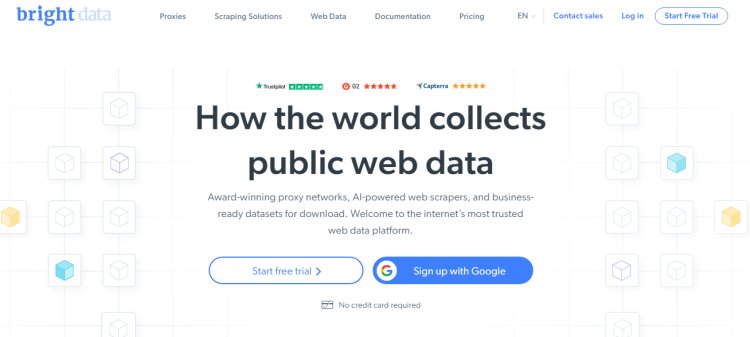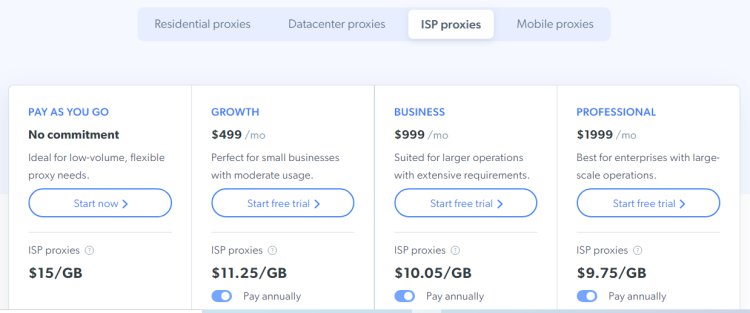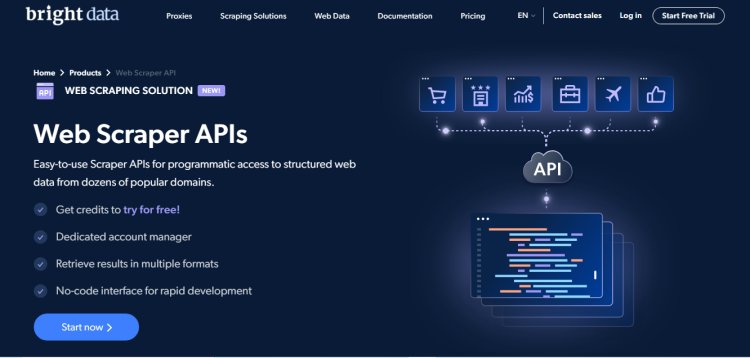Bright Data Proxies: A Comprehensive Review and Performance Evaluation
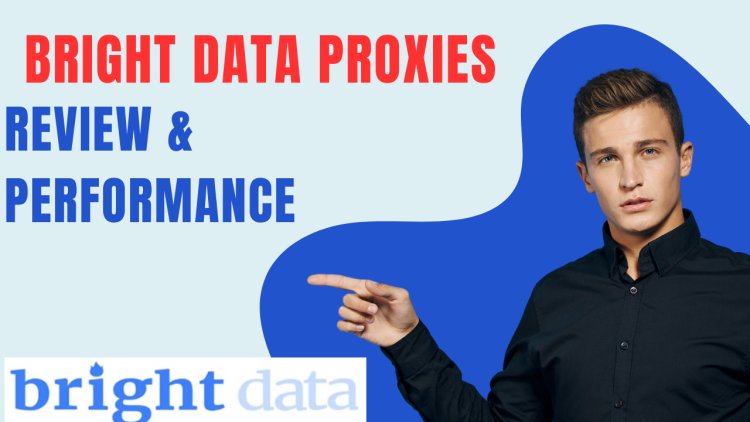
Introduction
In the ever-evolving landscape of online privacy and data management, proxies have become an essential tool for many businesses and individuals. Bright Data, previously known as Luminati, is a prominent player in this field. This review delves into Bright Data’s proxy services, examining their strengths, weaknesses, and overall effectiveness.
When discussing proxies, Bright Data frequently emerges as a benchmark against which all other options are measured. This provider caters to a diverse array of needs (excluding the more dubious applications), boasts a commendable track record, and maintains notable brand prominence. Additionally, the firm extends sophisticated management tools tailored for corporate clients, continually enhancing these with inventive features. Consequently, it earned our accolade as the Most Innovative and the Best Platform for Proxies in 2024.
In this analysis, we will scrutinize these potential vulnerabilities and their implications for your decision-making process. Our review encompasses both general insights and meticulous performance evaluations derived from extensive testing over several weeks. Let us commence!
General Information
|
Attribute |
Details |
|
Country |
Israel |
|
Founded |
2014 |
|
Proxy Networks |
- Datacenter (shared, dedicated, rotating) |
|
- ISP (shared, dedicated, rotating) |
|
|
- Residential |
|
|
- Mobile |
|
|
- Proxy API (general, search engines) |
|
|
Other Services |
- Web Scraper IDE |
|
- Scraping Browser |
|
|
- Datasets |
|
|
- E-commerce insights |
|
|
Supporting Tools |
- Browser extension |
|
- Proxy manager |
|
|
Price Range |
Premium |
|
Starting Price |
$1 |
|
Payment Methods |
PayPal, credit card, wire transfer, AliPay, Payoneer |
|
Trial |
7 days for companies |
Bright Data Proxy Networks
Bright Data proffers a quartet of proxy server varieties, each meticulously crafted to cater to distinct needs:
- Datacenter Proxies
- Shared Datacenter Proxies: These proxies allocate IP addresses among several users, offering a budget-friendly option. While this approach can economize costs, it may compromise performance and increase the likelihood of IP blacklisting.
- Dedicated Datacenter Proxies: These provide singular IP addresses reserved for one user, ensuring enhanced performance and privacy. Ideal for tasks demanding consistent reliability and discretion.
- Rotating Datacenter Proxies: Automatically altering IP addresses at regular intervals or per request, these proxies are designed to evade detection and minimize the risk of bans. Perfect for extensive web scraping and automated operations.
- ISP Proxies
- Shared ISP Proxies: These IPs, sourced from Internet Service Providers and shared among multiple users, offer a higher level of trust and are suited for general web activities.
- Dedicated ISP Proxies: Each IP is uniquely assigned to an individual user, guaranteeing superior privacy and performance. Well-suited for high-stakes activities requiring a robust and secure connection.
- Rotating ISP Proxies: These IPs rotate periodically, providing a dynamic browsing experience while helping to circumvent restrictions and avoid detection.
- Residential Proxies
- Utilizing IPs linked to residential addresses, these proxies are less likely to be flagged as proxies by websites. They are optimal for tasks requiring high anonymity and access to localized content, such as market research and web scraping.
- Mobile Proxies
- Derived from IPs assigned to mobile devices, these proxies offer exceptional flexibility and are particularly effective for mobile-specific tasks like app testing and ad verification.
Bright Data’s diverse proxy network ensures users can select the optimal solution tailored to their specific needs, whether it’s high-speed performance, robust anonymity, or geographic versatility.
Performance Benchmarks for Bright Data
Test 1: Infrastructure Performance of Shared Pay per IP Proxies
Proxyway's evaluation of Bright Data's 50,000 shared proxies based in the US, used to handle 50,000 connection requests from a computer in Germany, yielded promising results. The proxies successfully connected to a global CDN with a high success rate and low latency. Most requests were completed with response times consistently under one second, which was on par with competitors such as Smartproxy and Rayobyte.
Test 2: Download Speed
For testing download speeds, Proxyway used 10 shared and 10 dedicated IPs from DigitalOcean's 100 MB NYC benchmark. Both proxy types exhibited strong download speeds that were close to the baseline speed without proxies. This indicates that Bright Data's proxies offer sufficient bandwidth for tasks like streaming and intensive data operations.
Test 3: Performance with Popular Targets
Proxyway's tests involving around 2,600 connection requests to various targets using US proxies showed some difficulties with Amazon, where 35% of requests with dedicated proxies and 44% with shared proxies were blocked. This suggests potential issues with Amazon blacklisting specific IPs. Performance with other sites, barring Home Depot, was generally acceptable.
Bright Data Residential Proxies
Features:
- IP Diversity: Residential proxies come from a range of residential devices, offering diverse IP addresses.
- Anonymity: These proxies mask your actual IP with one from a residential network.
- Geographic Targeting: Allows selection of IPs from specific locations for region-restricted content or location-based testing.
- Rotation: Features customizable proxy rotation to avoid detection and blocking.
- Compatibility: Supports various protocols and applications, suitable for web scraping, SEO, etc.
- High-Quality IPs: Claims of high-quality IPs less likely to be flagged as proxies.
- Security: Some providers include security features to protect online activities.
- Scalability: Offers scalable solutions from individual users to large enterprises.
- Granular Location Targeting: Target locations down to ASN and ZIP code level.
- Customizable Rotation: Allows for personalized proxy rotation settings.
- SOCKS5 Protocol Support: Provides support for SOCKS5.
- Cached Pages: Features like cached pages for cost reduction.
Pricing Plans:
- Flexible usage without commitment or discounted plans for committed usage.
- Pricing based on traffic use with additional charges for features.
- Costs vary based on configuration and enabled features.
Performance Benchmarks:
Test 1: Pool Size & Composition
Proxyway's tests, which included 1 million requests over 21 days using the unfiltered pool, 500,000 requests over 14 days using country-specific pools, and 140,000 requests over 7 days using the Australian pool, showed that Bright Data's residential proxy pool is large and balanced, especially rich in American IPs. NetNut was the only competitor with more American IPs, but they use datacenter-based proxies.
Test 2: Infrastructure Performance
Testing with the same parameters as the pool test, Proxyway assessed the infrastructure performance of Bright Data’s residential proxies. The results were exceptional, with over a 99% success rate in all but one location, and average response times between 0.5 and 1.6 seconds. This performance was consistent over the year and competitive against other major providers.
Test 3: Performance with Popular Targets
Proxyway executed about 2,600 connection requests to popular websites using US-filtered proxies. The residential proxies showed strong performance across most sites, except for Google, which is intentionally blocked by Bright Data. The results were competitive with other major residential proxy providers.
Bright Data Mobile Proxies
Features:
- Residential IP Addresses: Uses IPs assigned to mobile devices.
- Rotating IP Addresses: Automatically changes IP addresses at set intervals.
- Geo-Location Options: Allows selection of IPs from specific geographic locations.
- Session Persistence: Maintains the same IP for the duration of a session.
- User-Agent Spoofing: Customizes User-Agent headers to mimic various devices and browsers.
- High-Quality Connections: Provides low-latency, reliable connections.
- Precise IP Filtering: Offers detailed IP address filtering.
- Rotation and Customizable Sessions: Supports IP rotation and customizable sessions.
- SOCKS5 Protocol Support: Includes support for SOCKS5.
- Unique Feature: Request caching for optimized performance.
Pricing Plans:
- Usage without subscription or discounted plans for committed usage.
- Traffic-based pricing with additional charges for premium features.
1.Proxies Residential:
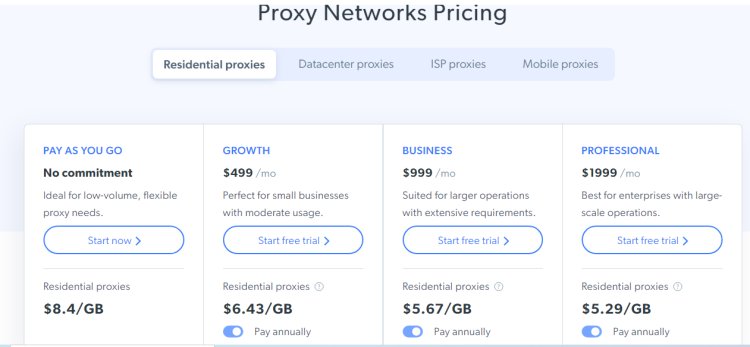
3.ISP Proxies:
Mobile Proxies
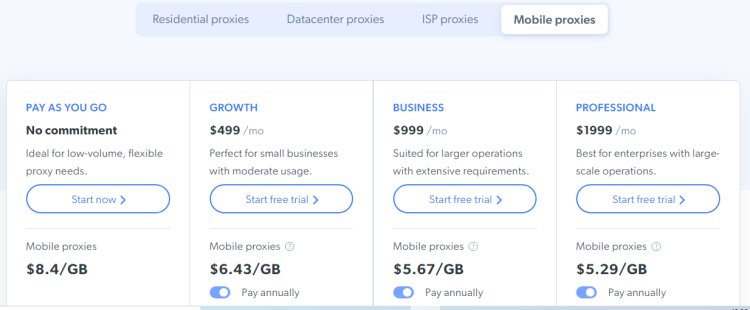
How to Use Bright Data
1. Registration Process:
Starting with Bright Data involves a detailed registration process where you provide personal details, including your first and last name, work email, and company size. For more specialized needs, scheduling a call is available. The login methods include traditional credentials, Google, and Okta SSO. Compliance is crucial, especially for peer-to-peer proxy networks, and KYC (Know Your Customer) is required for some websites, involving account funding and verification which may take up to three days.
2. Navigating the Dashboard:
Bright Data’s dashboard is designed to manage products, billing, and account settings. It includes features for adding funds, configuring proxies, reviewing usage statistics, and contacting support. Security features include team access levels, 2FA, event logs, and notifications.
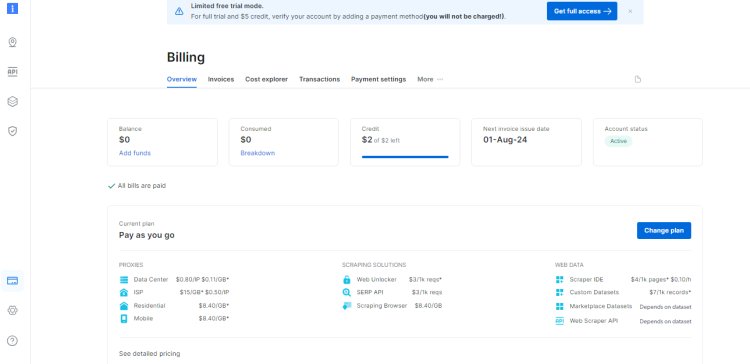
3. Subscription Management:
Bright Data uses a unique "Zones" system, allowing users to create and manage multiple zones with distinct configurations. Spending limits can be set per zone, and plans encompass all services based on the committed amount, unlike traditional segmented plans.
4. Proxy Management: To manage proxies, you must first create a zone, select proxy types, and configure settings using the configuration wizard. Once set, the zone is named and confirmed.
Integration Methods:
- API (Super Proxies): Provides gateway addresses and dynamic code samples for various programming languages. Even Pay per IP datacenter proxies connect through gateway servers, allowing for static sessions or IP pinpointing.
- Proxy Manager: An open-source tool available across operating systems and in the cloud, offering detailed logs, improved rotation settings, and SOCKS5 support. The Proxy Waterfall feature optimizes proxy usage.
- Browser Extension: A customizable Google Chrome extension for manual scraping, allowing IP changes based on Zones or locations, with settings for sticky sessions and request headers.
Usage Tracking: Bright Data emphasizes detailed statistics, accessible through the Zones page, proxy network tabs, or the Proxy Manager dashboard. Users can filter data by time periods and metrics, including bandwidth, request volume, and error rates.
Public API: Bright Data provides a comprehensive API for managing proxy servers with detailed control over various aspects of administration.
Documentation: Bright Data offers extensive documentation, including an FAQ page, webinars, and a video-based learning hub, although some content may be outdated.
Hands-On Support: Bright Data provides a ticket system for support directly from the dashboard. Committed users receive an account manager, with communication available via WhatsApp, Telegram, and phone. Average email response times are around 14 minutes, and account managers respond faster, though not 24/7.
Conclusion:
Bright Data, previously Luminati, is a prominent and versatile proxy provider with a broad range of services, including datacenter, residential, and mobile proxies. Despite past controversies, the company emphasizes ethical proxy sourcing and maintains a strong commitment to ethical standards. With its large networks and advanced features, Bright Data is recognized for its innovation in the proxy market. Users should evaluate their specific needs and preferences carefully to make the most of Bright Data’s offerings.
Frequently Asked Questions
- What services does Bright Data offer? Bright Data provides datacenter proxies, residential proxies, mobile proxies, data collection APIs, scraper development tools, and pre-collected data sets.
- What are the key features of Bright Data's datacenter proxies? Key features include various configurations (shared or dedicated), Bright Lite for entry-level tasks, and a premium rotating proxy pool for accessing protected websites.
- What challenges did Bright Data face with datacenter proxies in real-world scenarios? Challenges included significant blocks from Amazon and some performance issues with Home Depot, though other websites performed acceptably.
- How many residential IPs does Bright Data have in its network? Bright Data has a network of 72 million monthly residential IPs.
What's Your Reaction?








